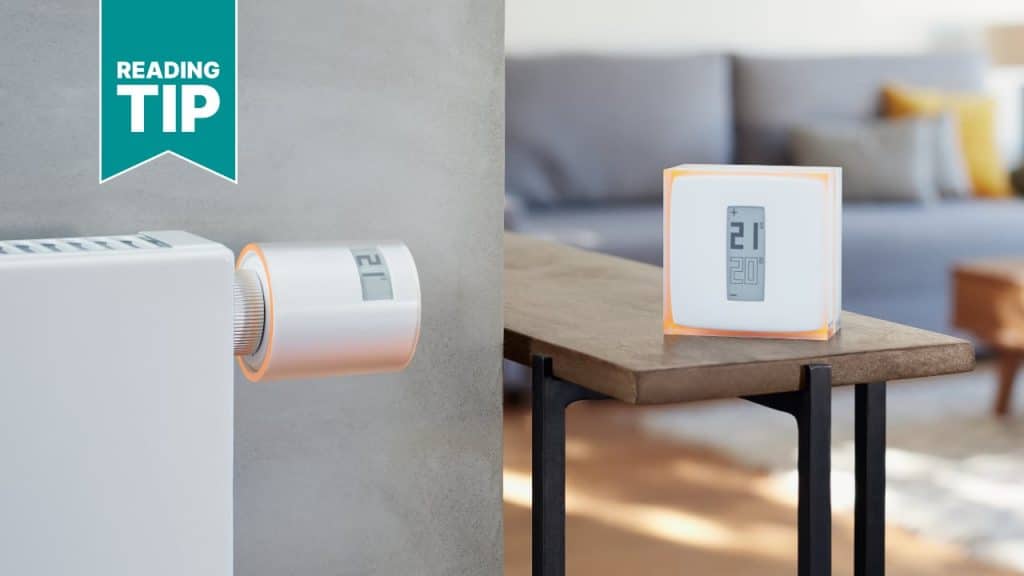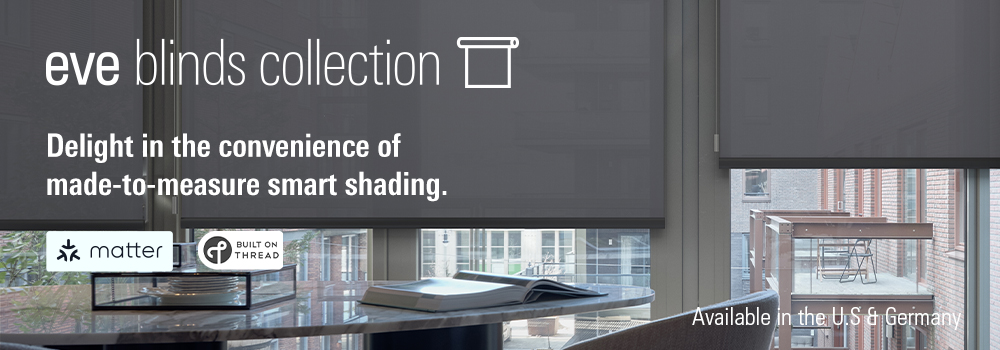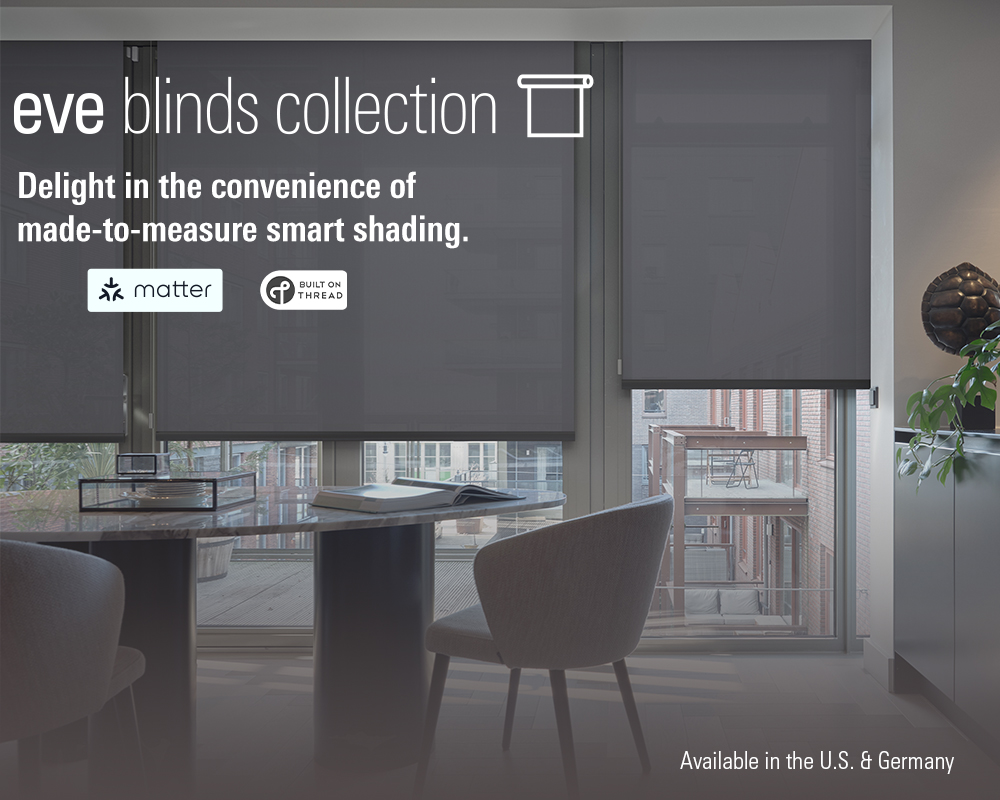
An interview with Florian Deleuil, vice president of product management at Netatmo (link), on the upcoming smart home standard Matter. What it means for manufacturers and how Netatmo is preparing for the growing competition.
Zur deutschen Übersetzung hier entlang.
What impact will the upcoming Matter standard have on smart homes?
Deleuil: There are some. Today, every manufacturer has its own app. You have an app for Legrand, Philips Hue, for Nest, Ring and so on. Tomorrow we will see a new category of products, Matter-products, who create their own network. It’s autonomous and does not need access to the internet. The user will be able to add new devices to the network using a so called „commissioner“-app, no matter which manufacturer they come from. As long als they are compatible with the standard, they will work. The network relies on Ethernet, Wi-Fi or Thread. And if there isn’t already a Thread network in the home, devices like the HomePod mini can double as a border router and integrate Thread products.
Quite promising from a user’s point of view …
Deleuil: The question is: What about remote access? Remote access is not part of the Matter specification. Apple, Amazon and Google will bring their own clouds into the game, as their gateways or hubs are already connected to the internet. The same applies to smart automation because this is also not a part of the protocol. So far, the interactions in Matter are very basic. For example a device can control another one by changing its state. Time tables are only supported for heating or cooling not for lights or shutters. Therefore, additional control systems are needed for complex triggers or smart automations.
Sounds like the whole thing could end up being a booster for big US corporations. Aren’t you afraid of falling behind?
Deleuil: No, we don’t worry yet, but it is not entirely impossible that this future will happen. Why we are not afraid: It’s very hard to make apps handling whole scenarios with specific use cases and all kinds of products. If you look at HomeKit for instance – which is basically the same as Matter, only in the apple ecosystem – the approach somehow failed to democratize the smart home. Because it is mainly looked at from an US perspective. For example, when thermostat control was launched in HomeKit, it was impossible to configure schedules. But schedules are the number one feature in Europe. That’s why HomeKit has not been very successful with thermostats in Europe. And that’s why I think Matter will not match all user’s expectations from year one. It may take five to ten years until Amazon, Apple, and others are really catching up to manufacturer apps. That gives us time.
„It may take five to ten years until Amazon, Apple and others are really catching up to manufacturer apps. That gives us time.“
So it’s mainly a matter of time?
Deleuil: Not only. In addition to the standardized clusters in Matter, there are also custom clusters with functions that can be implemented by the manufacturer, interpreted and understood only by his own ecosystem. As long as the big platforms do not provide us with space in their apps to expose such added value to the user, our app is still needed and will survive. Moreover, our customers are not only end consumers, but also installers. Matter does not provide any tools for professional users so far. Installing a connected roof window or flush mounted outlets requires know-how that the usual home app will never master. Therefore, it’s very unlikely that Google & Co. will quickly replace us.
Why should participating manufacturers have an interest in adding as many functions as possible to the Matter standard?
Deleuil: For some manufacturers, apps and clouds are not part of their business model. It takes skills, developers, servers and a special kind of company to provide such services. Software updates and adaptations to new iOS or Android versions have always been a nightmare for them. With Matter, they can better focus on the hardware. For Netatmo and other companies that already have the know-how, things are a little different. We need to focus more on the added value of our products in the future. And think carefully about what of these features we share with others. Otherwise, it could end up being difficult to distinguish our product from that of some cheaper and less innovative suppliers. In addition: By definition, an innovative feature which is exclusive to one or a couple of manufacturers cannot be contributed to the standard, as the minimum number of involved companies will likely not be enough. Only when the feature has reached a certain level of maturity or success and is being used by more manufacturers, it’s time for it to become a part of the standard.
„We need to focus more on the added value of our products in the future. And think carefully about what of these features we share with others.“
But isn’t the advantage of centralized control lost if certain functions are only accessible via the manufacturer’s apps?
Deleuil: It depends. Platform providers like Google and Amazon, for example, could integrate widgets into their home apps. Similar to what already exists in operating systems like Android and iOS today. This would allow us and other manufacturers to offer exclusive functions without the user having to leave their familiar Matter environment. We would be very happy to do that because it’s more user-friendly to have one single app than several of them. And we vendors wouldn’t have to spend time maintaining our application, adapting it to new operating system versions, and so on. Instead, we could focus entirely on the added value.
Do you think Netatmo and your parent company Legrand are well positioned for the coming Matter era?
Deleuil: Yes, in our own ecosystem with apps like „Home + Control“ and „Home + Security“ we have advanced features like advanced scheduling and scenarios. We are welcoming partners onto our apps such as Somfy to deliver a united premium smart home experience. Which will, partly, also be based on Matter. Because in terms of cryptography, security, reliability it is a very good standard. Legrand is part of the standard contributors because we believe in the approach. So, the question is not about Matter, but which ecosystem the user will choose. Maybe some users will do not want an Amazon home or a Google home. They want an independent home unlinked with those companies. And I think with Home + Control you have a subset of manufacturers that care for the respect of privacy. The good thing about Matter is we can do both, be compatible with the major platforms and at the same time continue to develop our own smart home ecosystem.
„The question is not about Matter, but which ecosystem the user will choose.“
So there will be Matter products from Netatmo in the not too distant future?
Deleuil: Sure. Without giving too much away: All initiatives for a new smart home protocol start with light bulbs and thermostats. These product categories do already exist in matter as well. Others from our range, such as cameras or weather sensors, are probably not supported at launch. They will be defined later. And when it comes to thermostats, for example, there are still questions to be answered. Currently, we have our own gateway that talks to the thermostats. We could make this gateway compatible with matter. Or we could offer thermostats that use Thread as the radio standard. However, the range of Thread is lower than our own radio protocol. So, users would have to have a well-developed Thread network already at home. In five years, that won’t be an issue. But we don’t want to bring a thermostat to the market before the necessary network is ready. It would be a fail. I can’t reveal today what products we are planning but they will appear around the launch of matter.
Mr. Deleuil, thank you very much for this interview.
Share this information:


